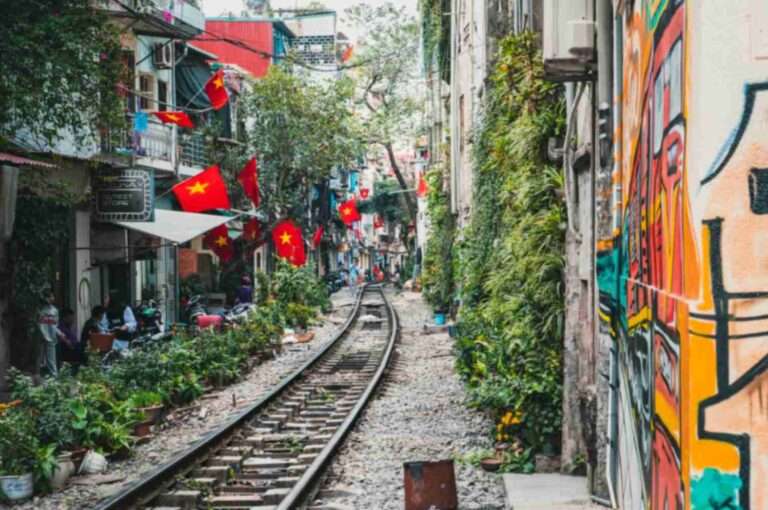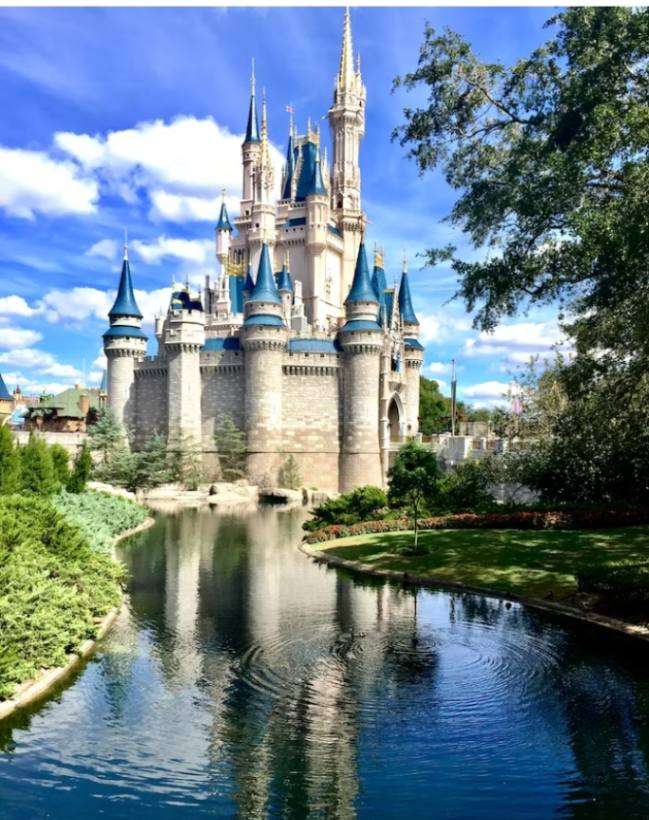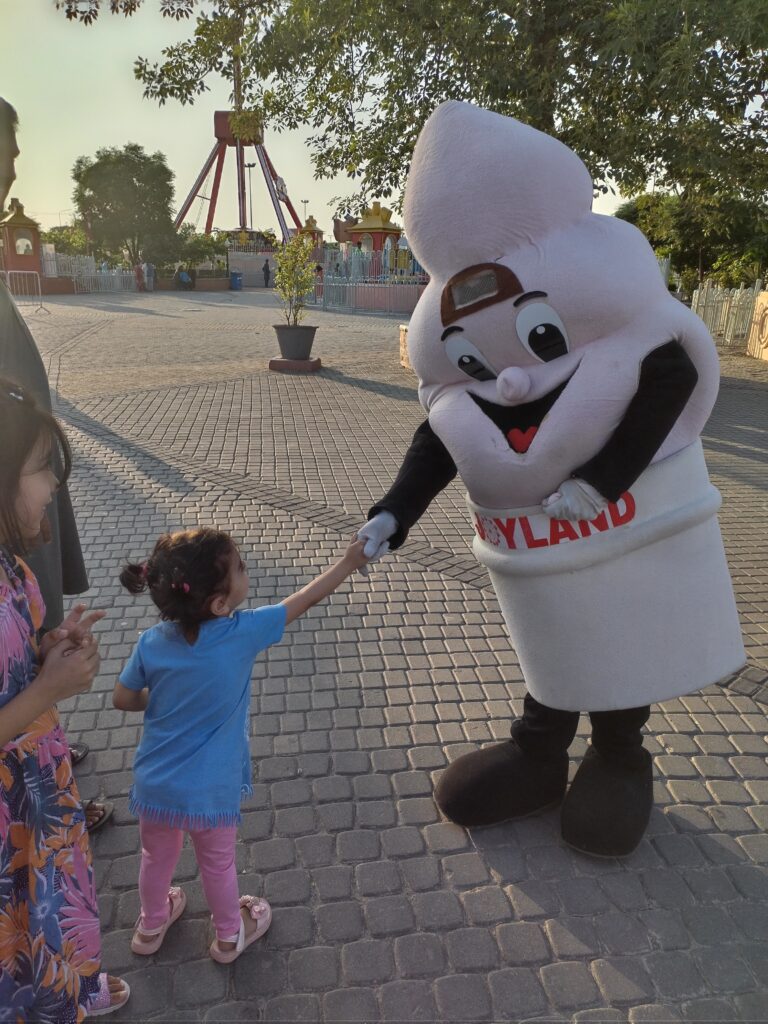In the heart of Central Asia, Uzbekistan is a country that resonates with a rich shades of history, vibrant culture, and breathtaking landscapes. With its ancient cities, intricate architecture, and warm hospitality, Uzbekistan invites travelers to explore the treasures of the Silk Road and experience the essence of a nation shaped by centuries of crossroads between East and West.
Contents
Historical Legacy:
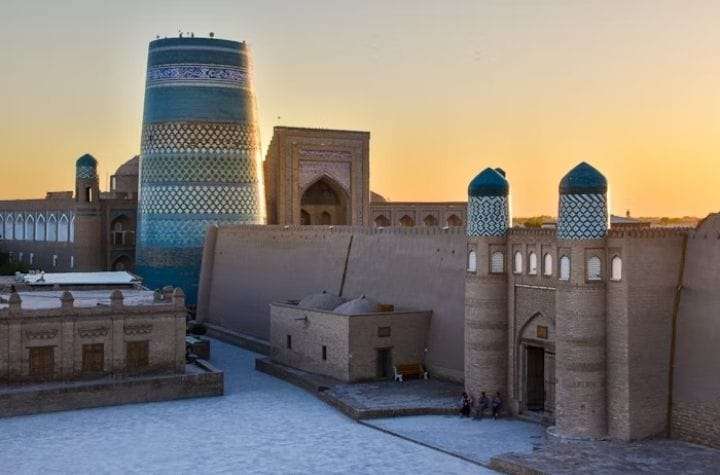
Uzbekistan boasts a history that spans millennia, with evidence of human civilization dating back to the Bronze Age. However, it was during the heyday of the Silk Road that the region truly flourished. Cities like Samarkand, Bukhara, and Khiva became bustling trade hubs, connecting cultures and facilitating the exchange of goods, ideas, and knowledge. The remnants of this historical splendor are preserved in the form of awe-inspiring monuments, mosques, and madrasas that stand proudly today.
Architectural Marvels:
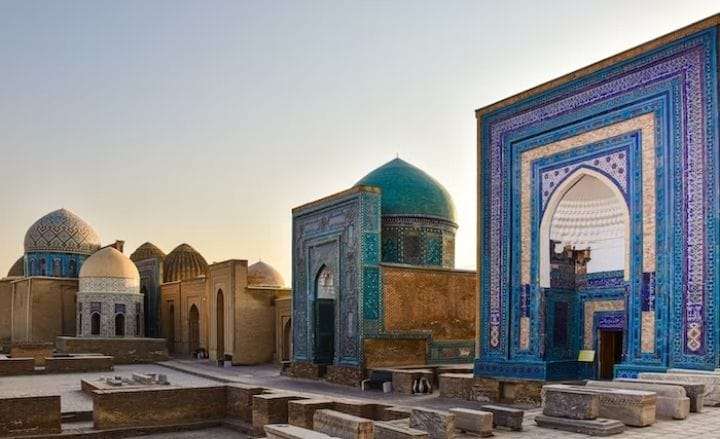
One cannot discuss Uzbekistan without marveling at the architectural wonders that grace its cities. Samarkand, often referred to as the “Pearl of the East,” is home to the Registan Square, a UNESCO World Heritage Site adorned with three grand madrasas – Ulugh Beg, Sher-Dor, and Tilya-Kori. The intricate turquoise tiles and majestic domes are a testament to the Timurid dynasty’s architectural prowess.
Bukhara, another ancient city, captivates visitors with its well-preserved historic center. The Ark Fortress, the Po-i-Kalyan complex, and the Lab-i Hauz ensemble showcase the unique blend of Persian and Central Asian architectural styles that define the cityscape.
Khiva, a UNESCO-listed city, transports travelers to a bygone era with its intact city walls, narrow streets, and historic buildings. The Ichon-Qala, an inner town within Khiva, is a living museum where every corner reveals a piece of the past.
Cultural Heritage:
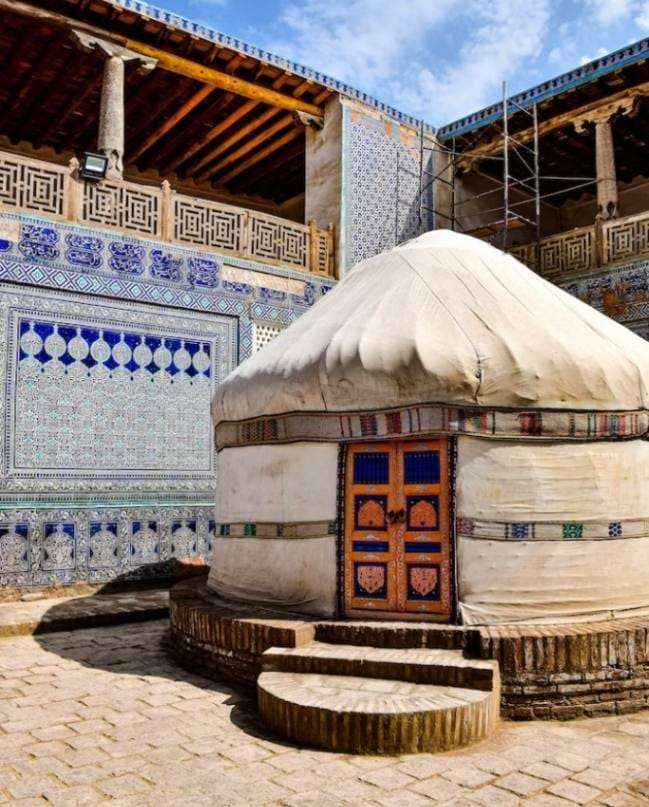
Uzbekistan’s cultural heritage is as diverse as its landscapes. The country is renowned for its traditional crafts, including intricate silk weaving, pottery, and carpet-making. The lively bazaars, such as Chorsu Bazaar in Tashkent, offer a sensory delight with vibrant colors, aromatic spices, and the hum of daily life.
Uzbek cuisine is a flavorful blend of Central Asian, Persian, and Russian influences. Pilaf, manti, and shashlik are just a few examples of the delicious dishes that grace Uzbek tables, reflecting the region’s agricultural abundance and culinary ingenuity.
Natural Beauty:
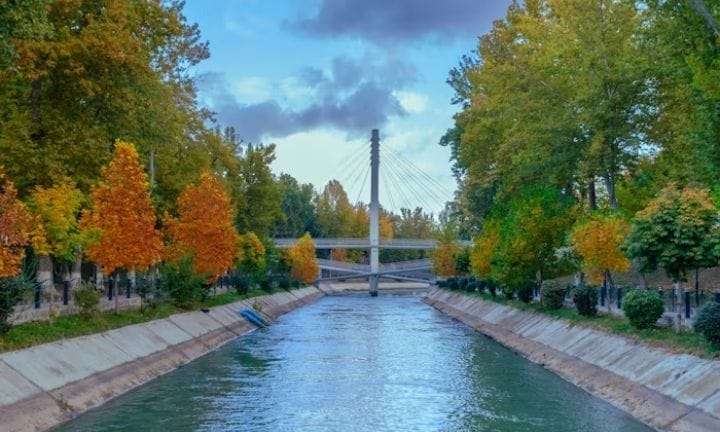
Beyond its historical and cultural allure, Uzbekistan boasts diverse and stunning landscapes. The Fergana Valley, surrounded by mountains, is a lush oasis of fertile plains and picturesque villages. The Kyzylkum Desert, one of the world’s largest sand deserts, offers a stark contrast with its golden dunes and unique flora and fauna.
Chimgan Mountains, located near Tashkent, provide a refreshing escape with their cool alpine climate, making them a popular destination for nature enthusiasts and adventure seekers.
best places to vist in uzebkistan
Uzbekistan is a country rich in history, culture, and architectural wonders. Choosing the “best” place to visit depends on your interests, but one of the most iconic cities in Uzbekistan is:
Samarkand:
Samarkand is often referred to as the “Jewel of the Silk Road” and is a UNESCO World Heritage Site. This ancient city has a history dating back thousands of years and was a key stop on the Silk Road trade route. Some must-visit attractions in Samarkand include:
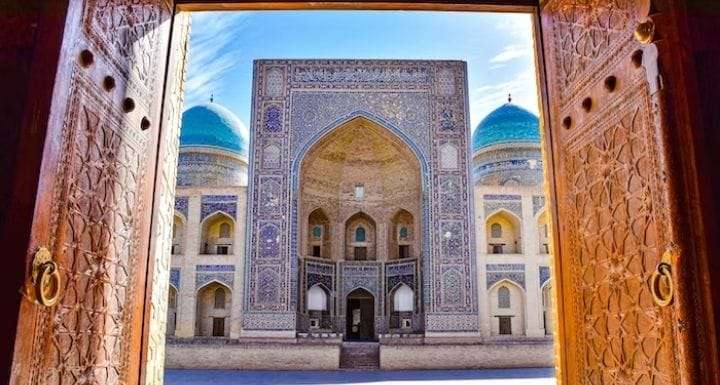
Registan Square:
This central square is surrounded by three grand madrasas – Ulugh Beg, Sher-Dor, and Tilya-Kori. The intricate tilework and stunning architecture make it one of the most photographed places in Central Asia.
Gur-e Amir Mausoleum:
The final resting place of Timur (Tamerlane), a powerful Central Asian conqueror. The mausoleum is known for its majestic blue dome and intricate tilework.
Shah-i-Zinda Necropolis:
A breathtaking avenue of mausoleums, each with its unique tile patterns and designs. It’s considered one of the most important Islamic architectural complexes in the world.
Bibi-Khanym Mosque:
Constructed by Timur in the 14th century, this mosque is a testament to the architectural grandeur of the Timurid dynasty.
Ulugh Beg Observatory:
Founded by Ulugh Beg, a medieval astronomer and ruler, this ancient observatory provides insight into the scientific achievements of the Timurid period.
tips for visiting uzebkistan
Traveling to Uzbekistan offers a unique and enriching experience, but like any destination, it’s helpful to be prepared. Here are some tips to ensure a smooth and enjoyable trip to Uzbekistan:
Visa Requirements:
Check the visa requirements well in advance of your trip. Many nationalities require a visa to enter Uzbekistan, so make sure to obtain the necessary documentation.
Currency:
The official currency is the Uzbekistani Som. While credit cards are widely accepted in larger cities, it’s advisable to carry some cash, especially when traveling to more remote areas.
Language:
The official language is Uzbek, but Russian is also widely spoken. English may not be as commonly spoken, especially in rural areas, so learning a few basic phrases in Uzbek or Russian can be helpful.
Local Customs and Etiquette:
Respect local customs and traditions. When visiting religious sites, dress modestly, and remove your shoes when entering mosques or private homes. It’s customary to greet people with a slight bow and a handshake.
Transportation:
Uzbekistan has a well-connected transportation system, with domestic flights, trains, and buses. Taxis and ride-sharing services are also available in cities. Plan your transportation, especially for long-distance travel.
Health and Hygiene:
Drink bottled or boiled water, and be cautious about street food to avoid stomach issues. It’s also advisable to check if any vaccinations are required before traveling.
Climate and Clothing:
Check the weather conditions for your travel dates and pack accordingly. In summer, lightweight and modest clothing is recommended, while in winter, warm layers are essential.
Photography:
Some historical sites may have restrictions on photography, so be respectful of the rules.
Safety:
Uzbekistan is generally a safe country for travelers. Keep an eye on your belongings, be cautious in crowded areas, and stay informed about local safety conditions.
Cultural Sensitivity:
Be aware of and respect the conservative nature of the local culture. Avoid public displays of affection, and be mindful of cultural norms regarding dress and behavior.
Shopping:
Bargaining is common in markets, so feel free to negotiate prices. Uzbekistan is known for its traditional crafts, so consider purchasing local textiles, ceramics, and other handmade goods.
By keeping these tips in mind, you’ll be well-prepared to immerse yourself in the rich history and culture of Uzbekistan, making your journey a memorable and enjoyable experience.
Conclusion:
Uzbekistan, with its blend of history, culture, and natural beauty, stands as a testament to the enduring spirit of a nation that has weathered the winds of time. As travelers immerse themselves in the splendors of Samarkand, Bukhara, and Khiva, and explore the varied landscapes that stretch from deserts to mountains, they find themselves on a journey through a living museum, where the past seamlessly intertwines with the present.
Frequently Asked Questions (FAQ) about Uzbekistan:
- Is Uzbekistan a safe destination for travelers?
Generally, Uzbekistan is considered a safe country for tourists. Exercise standard safety precautions, be aware of your surroundings, and follow local guidelines to ensure a secure travel experience.
- How much should I budget for a trip to Uzbekistan?
Uzbekistan is known for being a budget-friendly destination. On average, daily expenses for accommodation, food, transportation, and activities can range from $30 to $60 USD, depending on your travel style.
- What is the local currency in Uzbekistan, and are credit cards widely accepted?
The official currency is the Uzbekistani Som. While credit cards are accepted in major cities, it’s advisable to carry some cash, especially when traveling to rural areas or smaller establishments.
- Can I use US dollars or euros in Uzbekistan?
It’s recommended to exchange your currency for Uzbekistani Som. While some businesses may accept US dollars or euros, using the local currency is more convenient and may offer better exchange rates.
- What is the local cuisine like, and is it safe to try street food?
Uzbek cuisine is rich and diverse, with a focus on dishes like pilaf, manti, and shashlik. Street food is a common and delicious option in cities. To ensure food safety, choose vendors with clean cooking practices and opt for cooked or freshly prepared items.
- How is the weather in Uzbekistan, and when is the best time to visit?
Uzbekistan experiences a continental climate. Summers (May to September) are hot, with temperatures often exceeding 30°C (86°F). Spring (April to June) and autumn (September to November) are considered the best times to visit when temperatures are milder. Winters (December to February) are cold in northern regions.
- Are there any health precautions I should take while traveling in Uzbekistan?
Better to have good health insurance. Drink bottled or boiled water, and be cautious with street food to avoid stomach issues.
- What are some cultural norms to be aware of in Uzbekistan?
When visiting religious sites, dress modestly. It’s customary to greet people with a slight bow and a handshake. Public displays of affection should be avoided, and respect for local customs and traditions is appreciated.
- Is it safe to travel independently in Uzbekistan, or should I join a guided tour?
Traveling independently is generally safe and feasible in Uzbekistan. However, joining a guided tour can enhance your experience, especially if you’re interested in historical and cultural insights provided by knowledgeable guides.
- Are there any specific travel restrictions or entry requirements for Uzbekistan?
Check the current visa requirements for your nationality and any travel restrictions or entry requirements in place. Ensure your documentation is in order before embarking on your journey.
These FAQs provide a general overview, but it’s always advisable to check for the latest information and travel advisories before planning your trip to Uzbekistan.
I’m originally from Manchester (England) but I currently live in New York. I started this travel blog all the way back in 2009 to provide travel advice that wasn’t available in the guidebooks.
Since then I’ve traveled to over 60 countries, a lot of the time, solo. My site is filled with destination guides, things to do, epic itineraries and money-saving travel tips. I hope I can inspire you to see the world!




